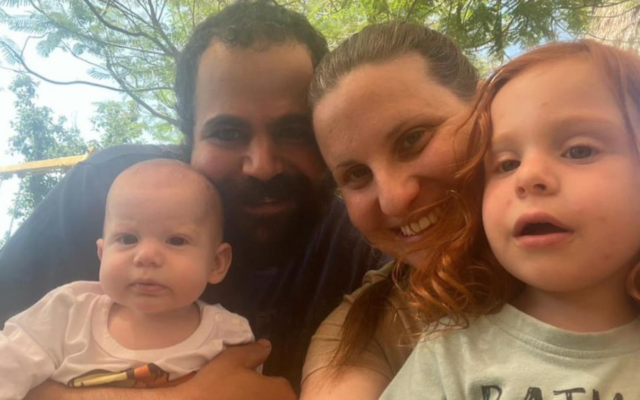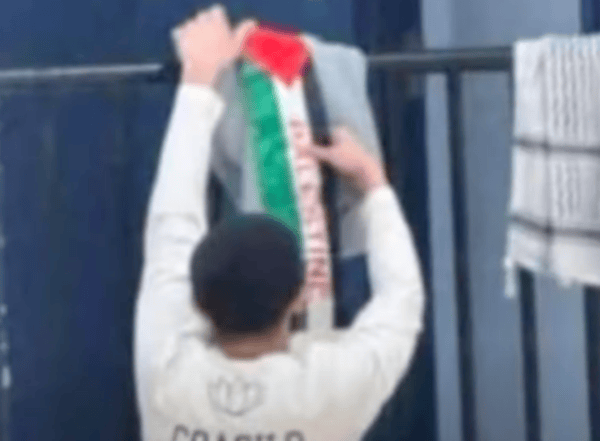ARTICLE AD BOX
Question: I am a single mother of young children. Their father has shirked all responsibilities to the children. I do my best for my children, and am doing that which is not really my responsibility. Isn’t the father in serious violation of the Torah by neglecting his children and not making any effort to provide them an education?
Name Withheld
Via E-mail
Answer: Last week we learned from the Mishna (Kiddushin 29a) that a father has certain responsibilities to his children, while a mother would be exempt. One of those responsibilities is teaching Torah. The Mechaber (Yoreh Deah 245:1-6) states that it is a Biblical requirement for the father to educate his son in Torah, either himself or by hiring a teacher. Meiri (Nazir 29) learns from R. Yochanan that other than designating a child a nazir, a woman shares in the obligations of child-rearing, including the education of her child. The Shita Mekubbetzes (Nazir ad loc) cites the Gemara (Sukkah 2b) about how Queen Helena trained her minor children to eat in the sukkah, indicating that a mother is also obligated to educate her children in the performance of mitzvot.
* * *
While in agreement that a mother bears responsibility to educate her children, many commentators (Meromei Sadeh, Keren Orah, Chidushei Orach Mishor, and Hagahot Birkat Rosh to Nazir 28b) distinguish between obligatory precepts and discretionary precepts.
Without doubt, they note, a mother is indeed obligated to train her children to fulfill commandments, but only in the performance of precepts (such as sukkah – our example of Queen Helena) that they will be obligated to perform when they reach maturity. The rendering of nezirut, however, is not an obligatory mitzvah, as there is no obligation for a person to become a nazirite. Indeed, from the Torah’s words (Numbers 6:2) “…Ish o isha ki yafli lindor neder nazir” – a man or a woman who shall dissociate him [or her] self by taking a nazirite vow of abstinence – it is clear that one adopts nezirut purely at one’s own discretion, in order to seek perfection and refinement. One of the paths to such refinement is this optional mitzvah, an exercise in abstinence and self-discipline for one who wishes to live a life of purity and sanctity. If a parent wishes to effect this level of sanctity and abstinence upon his child, as a means of imparting in him those unique qualities, it may be done – however, only by the father. Only the father is vested with the training of this mitzvah.
Chidushei Orach Mishor (Rabbi Yochanan Kremnitzer, cited above to Nazir 29) goes even further and explains that a mother’s only obligation is to train her children in positive precepts, mitzvot aseh, but not prohibitory precepts, mitzvot lo ta’aseh.
Rabbi Reuven Grozovsky (Novella to Nazir) explains this issue differently: Actually, a father is not obligated to train his children in the performance of commandments; rather, he bears personal responsibility for their transgressions. A father incurs punishment for his children’s transgressions because they are considered his own transgressions. This is indicated by the recital of the blessing “Baruch she’petarani me’onsho shelazeh” – Blessed is He Who has absolved me from the punishment due this one – which a father recites as his son reaches bar mitzvah. Thus it is in the father’s interest to train his children in mitzvot.
A mother, on the other hand, while obligated to educate and train her children in the performance of precepts, bears no personal responsibility for their transgressions. Rabbi Grozovsky further explains that a mother lacks the authority to declare a nazirite vow for her son because one cannot impose a vow on another person.
Then how is a father capable of imposing such a vow on his son? The answer lies in the unique relationship the Torah has vested in the father. Since a father is responsible for his son’s transgressions, the son is deemed an extension of the father in this regard, and the son is not considered a separate person. Therefore, just as he is able to render himself a nazir, he may render his son a nazir.
I would like to explain as follows. The Torah and our Sages place the responsibility of chinuch on the father because at times he might shirk his responsibility. As to the mother, there really is no need to place the full responsibility of chinuch on her because she will naturally do so herself. In fact, she will go to great lengths in that regard. Indeed, this is one of the reasons a woman is not obligated in time-related precepts – because of all her time-consuming responsibilities in the home.
We actually find numerous women in Scripture who, were it not for them, we would not be where we are today. To cite a few: Sarah Imeinu demands of her husband that Yishmael be removed from their home because of the bad influence that might affect her son Yitzchak, and G-d agrees with her decision and so instructs a rather reluctant Avraham Avinu to abide by her judgment call. Rivka Imeinu cunningly makes the determination without her husband’s knowledge or approval that Yaakov is the one to dedicate his life to Torah study and service to Hashem as the successor to his father Yitzchak. In her case there is great self-sacrifice, because as opposed to the situation faced by her mother-in-law, the child shunted aside is hers too; indeed, Yitzchak later concedes as to her wisdom in the matter. Then there is Oved, the grandfather of King David, who was raised completely by his widowed mother Ruth (his father Boaz having died before his birth) and her beloved mother-in-law Naomi. Klal Yisrael is deeply indebted to the wise counsel and action of these women.
Now, let us look at today’s society. When a mother is home taking care of her children, it is just that – parenting. However, when a father is home with his children it is commonly yet incorrectly referred to as “babysitting.”
Without doubt, the father who shirks his responsibility in the area of his children’s Torah education is in violation of his responsibility. However, it is obvious that as the loving and caring mother, you will do your utmost to fill the gap.
Next week, we will explore the mother’s role in the development of her children.
(To be continued)

 2 months ago
148
2 months ago
148









 English (US) ·
English (US) ·